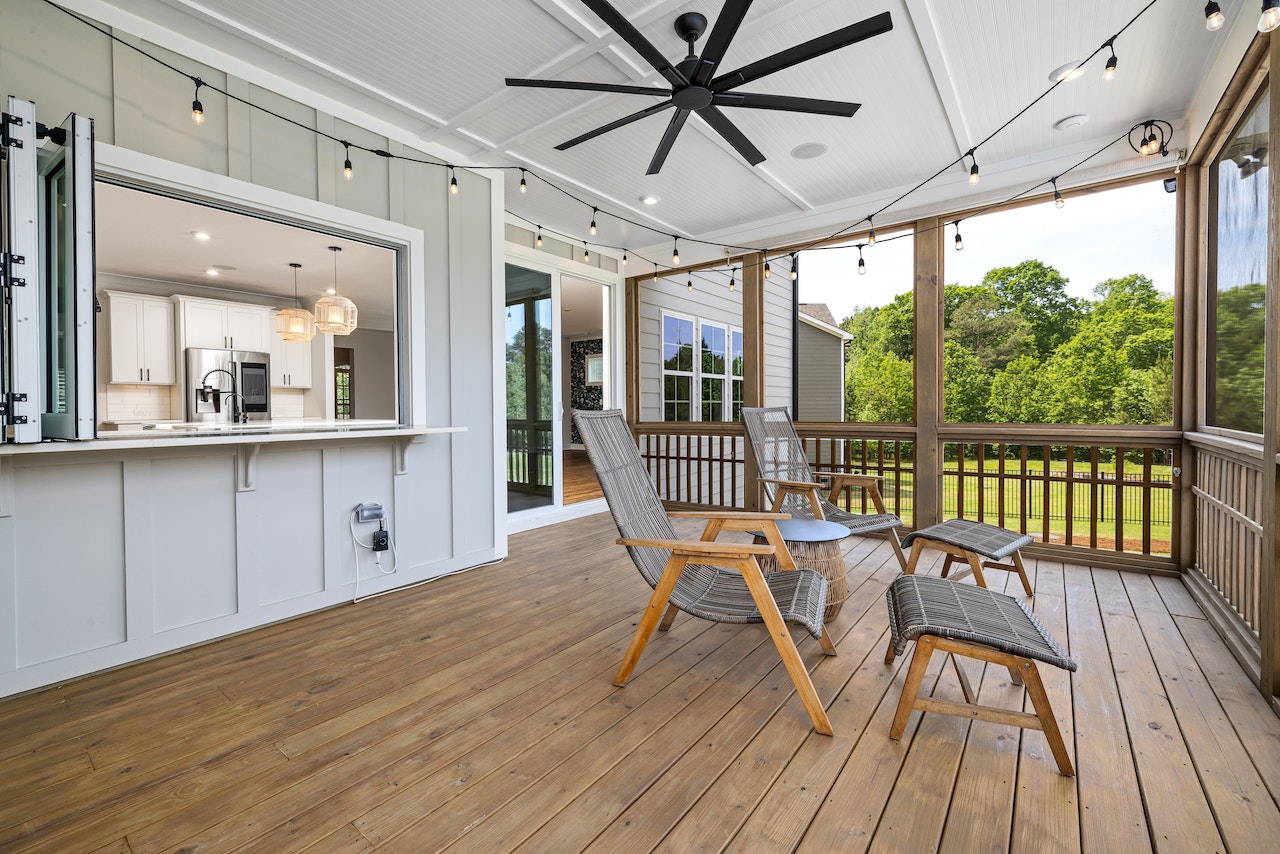The Future of Real Estate: Trends and Predictions for the Industry in the Next Decade
Real estate has always been a dynamic and evolving industry, and the next decade promises to bring even more changes and innovations. From technological advancements to changing consumer preferences, there are several trends and predictions that are likely to shape the future of the real estate industry. In this article, we will explore some of the key trends and predictions for the real estate industry in the next decade.
The Future of Real Estate: Trends and Predictions for the Industry in the Next Decade
Real estate has always been a dynamic and evolving industry, and the next decade promises to bring even more changes and innovations. From technological advancements to changing consumer preferences, there are several trends and predictions that are likely to shape the future of the real estate industry. In this article, we will explore some of the key trends and predictions for the real estate industry in the next decade.

1. The Rise of Smart Homes
Smart homes have been on the rise in recent years, and this trend is only expected to accelerate in the coming decade. With the increasing availability of smart home technology and the growing demand for energy-efficient and sustainable homes, more and more homeowners are expected to embrace this trend. Smart homes allow homeowners to control their home's lighting, heating, and security systems remotely, and can even learn their preferences and adjust accordingly.
2. The Growing Popularity of Co-Living Spaces
As housing prices continue to rise and millennials prioritize experiences over ownership, co-living spaces are becoming an increasingly popular option for many people. These communal living spaces offer affordable and flexible housing options that promote community and social interaction. They typically provide shared amenities and services such as coworking spaces, fitness facilities, and communal kitchens. With the rise of remote work and the growing preference for urban living, co-living spaces are likely to become even more popular in the coming decade.
1. The Rise of Smart Homes
Smart homes have been on the rise in recent years, and this trend is only expected to accelerate in the coming decade. With the increasing availability of smart home technology and the growing demand for energy-efficient and sustainable homes, more and more homeowners are expected to embrace this trend. Smart homes allow homeowners to control their home's lighting, heating, and security systems remotely, and can even learn their preferences and adjust accordingly.
2. The Growing Popularity of Co-Living Spaces
As housing prices continue to rise and millennials prioritize experiences over ownership, co-living spaces are becoming an increasingly popular option for many people. These communal living spaces offer affordable and flexible housing options that promote community and social interaction. They typically provide shared amenities and services such as coworking spaces, fitness facilities, and communal kitchens. With the rise of remote work and the growing preference for urban living, co-living spaces are likely to become even more popular in the coming decade.
3. Increased Emphasis on Sustainability
Sustainability is no longer just a buzzword in the real estate industry - it's becoming a necessity. With the growing awareness of climate change and the need for more sustainable practices, the real estate industry is expected to place a greater emphasis on sustainability in the coming decade. This will include a focus on green building practices, energy-efficient homes, and the use of renewable energy sources.
4. The Continued Rise of Online Real Estate Platforms
Online real estate platforms have already disrupted the traditional real estate industry, and this trend is likely to continue in the coming decade. These platforms offer buyers and sellers a more streamlined and transparent experience, with features such as virtual property tours, online bidding, and 24/7 access to property listings. As younger generations become the dominant force in the housing market, the demand for online real estate platforms is only expected to increase.
5. The Adoption of Blockchain Technology
Blockchain technology has the potential to revolutionize the real estate industry by improving transparency and efficiency. This technology can be used to streamline the buying and selling process, reduce transaction costs, and ensure the accuracy of property records. While blockchain technology is still in its early stages in the real estate industry, it is expected to gain wider adoption in the coming decade.
3. Increased Emphasis on Sustainability
Sustainability is no longer just a buzzword in the real estate industry - it's becoming a necessity. With the growing awareness of climate change and the need for more sustainable practices, the real estate industry is expected to place a greater emphasis on sustainability in the coming decade. This will include a focus on green building practices, energy-efficient homes, and the use of renewable energy sources.
4. The Continued Rise of Online Real Estate Platforms
Online real estate platforms have already disrupted the traditional real estate industry, and this trend is likely to continue in the coming decade. These platforms offer buyers and sellers a more streamlined and transparent experience, with features such as virtual property tours, online bidding, and 24/7 access to property listings. As younger generations become the dominant force in the housing market, the demand for online real estate platforms is only expected to increase.
5. The Adoption of Blockchain Technology
Blockchain technology has the potential to revolutionize the real estate industry by improving transparency and efficiency. This technology can be used to streamline the buying and selling process, reduce transaction costs, and ensure the accuracy of property records. While blockchain technology is still in its early stages in the real estate industry, it is expected to gain wider adoption in the coming decade.
6. The Rise of Micro-Markets
As urbanization continues to drive demand for housing in major cities, micro-markets are emerging as a new trend in the real estate industry. These are smaller, more focused markets within larger urban areas that are becoming increasingly popular due to their unique characteristics and amenities. Examples of micro-markets include neighborhoods that are known for their art scene, or areas that are popular with young professionals.
7. Greater Emphasis on Health and Wellness
The COVID-19 pandemic has brought health and wellness to the forefront of people's minds, and this trend is likely to continue in the real estate industry. In the coming decade, we can expect to see a greater emphasis on health and wellness features in homes and commercial properties. This may include the use of air filtration systems, the incorporation of green spaces and outdoor amenities, and the promotion of healthy living through the design of the built environment.
6. The Rise of Micro-Markets
As urbanization continues to drive demand for housing in major cities, micro-markets are emerging as a new trend in the real estate industry. These are smaller, more focused markets within larger urban areas that are becoming increasingly popular due to their unique characteristics and amenities. Examples of micro-markets include neighborhoods that are known for their art scene, or areas that are popular with young professionals.
7. Greater Emphasis on Health and Wellness
The COVID-19 pandemic has brought health and wellness to the forefront of people's minds, and this trend is likely to continue in the real estate industry. In the coming decade, we can expect to see a greater emphasis on health and wellness features in homes and commercial properties. This may include the use of air filtration systems, the incorporation of green spaces and outdoor amenities, and the promotion of healthy living through the design of the built environment.

As we've seen, the real estate industry is evolving rapidly, and new trends and technologies are emerging all the time. From virtual and augmented reality to blockchain and AI, these innovations are transforming the way we buy, sell, and rent property.
One thing is clear: the future of real estate is digital. As younger generations come of age and demand more personalized and convenient experiences, online platforms and tools will become increasingly important. However, as we've also noted, the human touch will remain critical, particularly in areas like negotiation, customer service, and property management.
Ultimately, the real estate industry will need to adapt to these changes if it wants to remain relevant and competitive in the years to come. While there will undoubtedly be challenges and obstacles along the way, there are also tremendous opportunities for those who are willing to embrace innovation and stay ahead of the curve. Whether you're a real estate professional or simply an interested observer, the future of this industry promises to be an exciting one.
As we've seen, the real estate industry is evolving rapidly, and new trends and technologies are emerging all the time. From virtual and augmented reality to blockchain and AI, these innovations are transforming the way we buy, sell, and rent property.
One thing is clear: the future of real estate is digital. As younger generations come of age and demand more personalized and convenient experiences, online platforms and tools will become increasingly important. However, as we've also noted, the human touch will remain critical, particularly in areas like negotiation, customer service, and property management.
Ultimately, the real estate industry will need to adapt to these changes if it wants to remain relevant and competitive in the years to come. While there will undoubtedly be challenges and obstacles along the way, there are also tremendous opportunities for those who are willing to embrace innovation and stay ahead of the curve. Whether you're a real estate professional or simply an interested observer, the future of this industry promises to be an exciting one.












